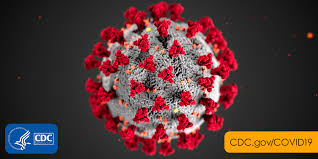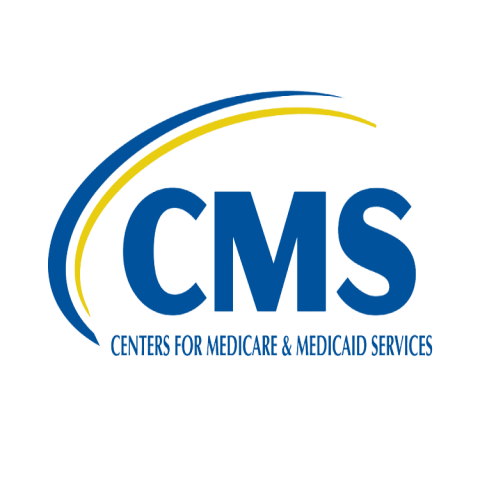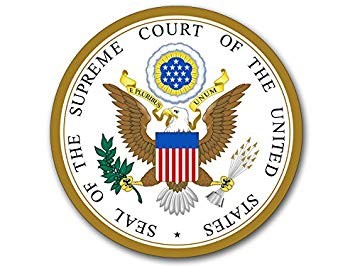|
 COVID-19 COVID-19
Congress and the administration are responding to the COVID-19 crisis in a variety of ways. It is important that the various relief and safety efforts meet the needs of people with disabilities. Your education to members of Congress about the impact on people with disabilities is important during this time.
What happened last week:
- ·Both the House and Senate are now on the July 4th Recess; when they return, we expect them to act on a 4th COVID-19 relief package
- Hearings were held in the House and Senate related to COVID, including:
- Senators continue to work introducing legislation that indicates their priorities to be included in the next package.
Plain Language:
- Congress is working on bills to support people during COVID-19. They need to hear from you about the needs of people with disabilities.
What this means to you:
- More than 105 million Americans - or about 4 in 10 adults - are at greater risk if infected with the coronavirus (COVID-19), including older adults, people with disabilities and those with underlying health conditions. The front-line workers and family caregivers who support these individuals also face increased risks, requiring additional resources and supports to protect their health and well-being.
Action steps:
Emergency Housing Protections and Relief Act
The House of Representatives passed the Emergency Housing Protections and Relief Act of 2020 (H.R.7301) on May 29, 2020, largely along party lines, to provide financial relief for renters and homeowners as the COVID-19 crisis continues to cause economic fallout. The Act allocates $100 billion to the U.S. Department of Housing and Urban Development (HUD) for emergency rental assistance over the next three years and creates a $75 billion dollar mortgage relief fund for homeowners, as well as extending eviction and foreclosure moratoriums outlined in the CARES Act through March 2021. The housing needs of people with disabilities were specifically addressed by the authorization of $200 million in additional funding for section 811 housing. The bill now heads to the Senate, where it is not expected to pass.
Plain Language:
Many people are in danger of losing their homes because they have lost their jobs during COVID-19 and cannot pay their rent. Congress is working on a bill to help people, including people with disabilities, stay in their homes.
Action Steps:
- Read more about the Act
- Check out the resources on this blog post about housing vouchers for people with disabilities during COVID-19 from the Technical Assistance Collaborative.
Patient Protection and Affordable Care Enhancement Act
The Patient Protection and Affordable Care Enhancement Act (H.R. 1425) was passed in the House of Representatives on Tuesday, largely along party lines, 234-179. The goal of the legislation is to improve affordability of health care under the Affordable Care Act, including:
- Expand tax credits to lower premiums on plans bought through the ACA
- Press states that have not yet done so to expand Medicaid
- Require that Medicaid and CHIP cover new moms for 1 year postpartum
- Crack down on junk plans
AUCD and the disability community are supporters of many of these important efforts. We are aware that the bill also includes policies intended to offset its costs that are based on discriminatory quality-adjusted life years (QALYs) and similar metrics based on averages. Now that this bill is moving on to the Senate, the disability community needs to educate Senators on the need for advocacy to remove provisions that would weaken the Affordable Care Act's existing protections for people with disabilities.
Plain Language:
- Congress is working on a bill to improve affordability of health care under the Affordable Care Act. They need to hear from you about why people with disabilities are opposed to referencing quality-adjusted life years (QALYs) used in other countries.
What this means to you:
- The Patient Protection and Affordable Care Enhancement Act may have provisions that you support and that benefit people with disabilities. As it is currently written there is reason to be concerned that it could increase discrimination.
Action steps:
- Learn more about discrimination and QALY
Share your thoughts with your Senators
- Email or call the Capitol Switchboard at: (202) 224-3121 (voice) or (202) 224-3091(tty) and ask to be connected to your Senators.
- You can use this easy tool to find your members of Congress

Civil and Human Rights
The disability community's connections to and intersection with all parts of the civil and human rights community are essential to who we are and lead us to stand together and speak out against injustice and inequality in all its forms. While efforts to address police reform and racism at the federal level have stalled, change is happening in local and state governments and within businesses and communities.
Plain Language:
- Racism hurts our country. People are protesting and speaking out for change.
What this means to you:
- We all have a role in addressing racism and making needed changes. The injustice and inequality experienced by black Americans is a human rights, civil rights, and disability rights issue. The disability community will work for change.
Action steps:
- Continue to learn about the issues
- Contact your Congressional delegation by email or call the Capitol Switchboard at: (202) 224-3121 (voice) or (202) 224-3091(tty) and share your thoughts on proposed bills
|
Bill
|
Status
|
Summary
|
|
Justice in Policing Act of 2020
|
Passed the House June 25, 2020
|
Bans chokeholds, establishes a national database to track police misconduct and prohibits certain no-knock warrants, among a range of steps
|
|
JUSTICE Act (S 3985)
|
Introduced on June 17, 2020
|
Discourages, but does not ban, tactics such as chokeholds and no-knock warrants, requires local law enforcement agencies to report all officer-involved deaths to the FBI and encourages broader use of body-worn cameras for officers.
|
 
Supreme Court Ruling in Education
The Supreme Court issued a decision on 6/30/2020 in Espinoza v. Montana Department of Revenue declaring that it is unconstitutional for the state of Montana to exclude religious private schools from student tuition assistance programs. The 5-4 ruling, divided along ideological lines in favor of the conservative Justices, strikes down a clause in the Montana state constitution that banned public funds from being used for religious schools. Almost 40 states have similar such clauses, often known as "Blaine Amendments," as a means of separating church and state, but which are now most likely considered unconstitutional. The ruling is considered a win for the Trump Administration and Education Secretary Betsy DeVos, who have argued that Blaine Amendments limit school choice options and discriminate against families that want a religious education for their children. However, supporters of public education argue that the ruling will lead to more money flowing out of already underfunded public schools, harming the 90% of America's students that attend public schools. The National Disability Rights Network (NDRN) filed an amicus brief in Espinoza v. Montana alleging that overturning the ban on public funding for religious schools would disproportionately harm students with disabilities because it further guts public school funding while private schools have no legal obligation to accept and support students with disabilities.
Plain Language:
The Supreme Court decided that states cannot stop families from using money from the government to send their children to private religious schools. Some people think this is a good change because it means parents will have more school choices for their kids. Other people do not think this is a good change because it will take more money from the students at public schools.
What this means to you:
This decision could be harmful to many students with disabilities because private schools do not need to accept students with disabilities and public schools will have less money to spend on their students.
Action steps:
- Read more about the case, including the amicus brief filed by the NDRN, which the AUCD and other disabilities rights organizations also signed. (Amicus briefs are legal documents filed in court cases by interested members of the community. The briefs advise the court of relevant, additional information or arguments that the court might wish to consider which can have significant impact on judicial decision-making.)
- You can also read the NDRN's response to the decision, released 7/1/2020.

Voting
As primaries continue and we prepare for November 3rd, AUCD shares these voting resources:
AUCD resources to share and support your efforts:
Tuesdays with Liz on Voting
AUCD Policy Talk
This week on #AUCDPolicyTalk we finish our #CommunityLiving series with Jamie Ray Leonetti, Policy Director from the Institute on Disability as she shares the continued fight for Home and Community based services. #WhatWeNeed #ADA30
Action Steps:
 Love Policy? We do too! Love Policy? We do too!
Check out AUCD's new policy resource, a one-page fact sheet to help explain AUCD's policy efforts, and engage with us today!
|
